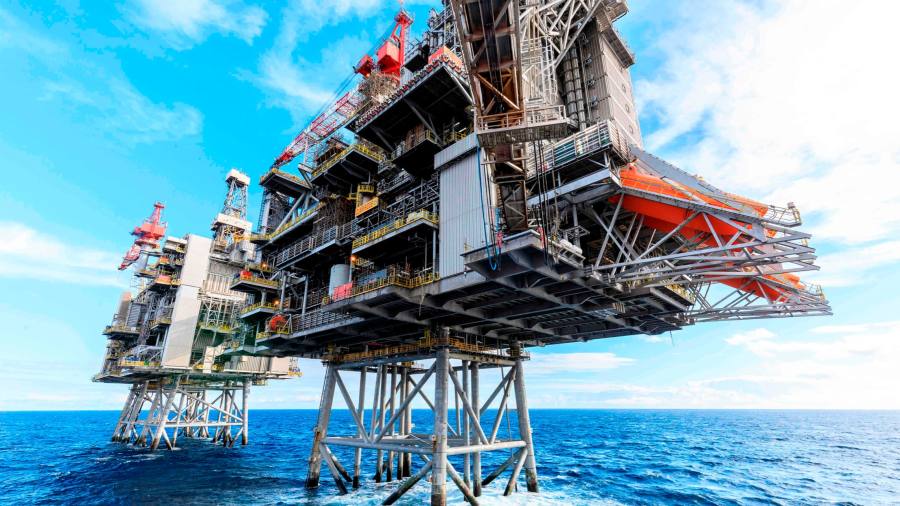Kemal Derviş (pronounced Dervish), the Istanbul-born economist who launched the ambitious restructuring of the Turkish economy after a devastating devaluation in 2001, has died aged 74.
Derviş, who suffered from Parkinson’s disease, rose to international prominence as the architect in his native Turkey of one of the world’s most successful IMF stabilisation programmes following a 22-year career at the World Bank in Washington. So powerful were the vested interests he challenged with the establishment of apolitical market regulators that the newly-minted minister of state for the economy took to wearing a bulletproof vest, recalls Ajay Chhibber, the World Bank representative in Ankara who worked closely with him during his 17 months in office.
Turkish newspapers at the time of his appointment by then prime minister Bülent Ecevit described the cosmopolitan polyglot as everything from “bionic” to “the last Turk the world has any confidence in”. A political novice, Derviş explained painful reforms with a clarity and sincerity that resonated with ordinary Turks after decades of economic mismanagement under a succession of shaky coalition governments.
Following the failure of 17 previous programmes for Turkey, the IMF-backed $8bn rescue combining structural reforms with fiscal orthodoxy gave the Nato ally straddling Europe and Asia an unprecedented decade of economic growth and foreign direct investment. And this happened only because Recep Tayyip Erdoğan, who started off as a reformer in pursuit of EU membership, initially continued to implement the programme he had inherited from Derviş after his Justice and Development party (AKP) was elected by a landslide in 2002.
But two decades later, Turkey’s increasingly authoritarian leader had driven central bank independence into the ground with his belief that interest rates cause inflation. As Derviş watched on from Washington, where he died, the former Islamist firebrand fostered a return to the crony capitalism and hyperinflation that plagued Turkey for the latter part of the 20th century.
What was left of Derviş’s legacy was a marker of the success that a well-managed Turkish economy and private sector are capable of.
“That success was very hard-won and it created, in spite of the backward movement since then, a significant benchmark in the national memory,” said Sevdil Yildirim, a Turkish business leader and former financial regulator.
Other Turks were less positive. While far-right nationalists accused the keen tennis player of being a US agent, others blamed Erdogan’s rise on Derviş’ decision not to lend his support to the fledgling reformist New Turkey party.
Instead he backed the long-established Republican People’s party, which in the May 14 presidential election will lead a six-party opposition attempt to unseat Erdoğan. That bloc includes Ali Babacan, who continued Derviş’s plan after succeeding him as minister of state for the economy.
Other observers dismissed the idea that a new party backed by Derviş could have stopped Erdoğan. As one western official put it: “Politically Kemal was struggling because he was an outsider and he got outmanoeuvred.”
Nor did Derviş, a technocrat who could charm any audience in Turkish, English, German or French, particularly care for the nitty-gritty of retail politics in Turkey. The mainstream Hürriyet newspaper reported in 2015 that he had agreed to serve as minister of economy in the event of an election victory by the Republican People’s party — but only from outside parliament.
And he was quoted as saying this when a childhood friend asked why he had not competed more vigorously for power: “Going into politics in Turkey means campaigning all around Anatolia with your party comrades and going into towns and villages surrounded by party men, then sitting around with local men . . . all smoking in closed surroundings . . . I can’t do that.”
After the two parties that had vied for his support were crushed by the AKP in the 2002 election, Derviş returned to the US where he served as administrator at the United Nations Development Programme from 2005-9. He then moved to the Washington-based Brookings Institution to lead its global economy and development programme until 2017.
In 2011, his name was floated as a leading contender to take over as managing-director of the IMF after Dominique Strauss-Kahn was forced out by his arrest for sexual assault. But Derviş decided against running for fear that an earlier affair with a married subordinate at the World Bank would ultimately count against him.
The descendant of a reformist Ottoman prime minister, Derviş grew up speaking German to his mother, who had met his businessman father while she was working as a secretary at the German embassy in Ankara during the second world war. Having spent his early childhood on the island of Büyükada near Istanbul, the young Derviş was sent to the elite Le Rosey boarding school in Switzerland before going on to study economics at the LSE and Princeton.
Derviş is survived by his American-born second wife Catherine and his first wife, childhood sweetheart Neslihan Borali, with whom he has two sons, Erdal and Erol.
















